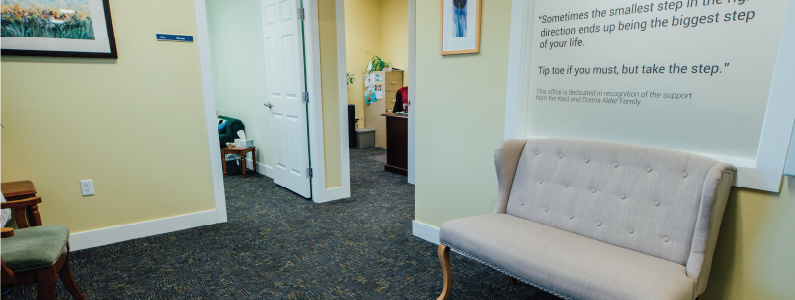As we step into a new year, the season of goal-setting and self-improvement is in full swing. Many of us are reflecting on where we’ve been, envisioning where we’d like to go, and planning the steps it will take to get there. At CAPSA, we want you to know that this spirit of renewal and growth aligns perfectly with our mission. Whether you’re seeking safety, healing, or a fresh start, CAPSA continues to provide life-saving services to support you every step of the way.
A Fresh Start for Survivors
For survivors of domestic violence and sexual assault, the idea of new beginnings can feel daunting. Setting goals and working on personal growth may seem out of reach when you’re navigating difficult circumstances or healing from trauma. That’s why CAPSA’s life-saving services are designed to meet you where you are and help you build the future you envision—not just in January, but every day of the year.
Seeking support is not just an act of bravery; it’s a powerful declaration that you are ready to embrace the hope and healing you deserve. At CAPSA, we’re here to walk beside you through every step of your journey. Our comprehensive programs are designed to empower survivors, restore independence, and create lasting change.
Services We Offer
At CAPSA, our services are centered around providing hope, choice, freedom, and independence. Here’s how we can support you:
- Emergency Shelter: If you need immediate safety, our emergency shelter offers a secure and welcoming space. You deserve to feel safe and supported.
- 24/7 Crisis Hotline: Our confidential hotline is available around the clock to offer guidance, support, or just a listening ear. You can reach us any time at (435) 753-2500.
- Therapy and Counseling: Healing is a journey, and our licensed therapists specialize in helping survivors process trauma and rebuild their lives.
- Case Management: Our caseworkers work with you to create personalized plans, connecting you with resources for housing, employment, and education.
- Support Groups: Sharing your experiences with others who understand can be incredibly empowering. Our support groups foster community and healing.
- Legal Advocacy: Navigating the legal system can be overwhelming. Our advocates are here to guide you through protective orders, custody arrangements, and other legal needs.
- Transitional Housing: For those ready to take the next step toward independence, our transitional housing program provides stable, affordable housing.
- Prevention and Education: CAPSA also works within the community to prevent violence through education and awareness programs, helping create a safer future for all.
New Year, New Opportunities
The start of a new year is an opportunity to reclaim your voice, set boundaries, and embrace the life you deserve. At CAPSA, we believe in your resilience and strength. Whether you’re reaching out for the first time or continuing on your journey with us, we’re here to provide the tools, resources, and support you need to achieve your goals.
Self-improvement doesn’t have to mean monumental changes overnight. Small steps, like calling our hotline, attending a support group, or setting up a meeting with a caseworker, can be transformative. Each step you take toward healing and growth is an act of courage and self-love.
Partnering with the Community
CAPSA’s work would not be possible without the support of our community. From financial contributions to volunteer efforts, your involvement helps us provide life-saving services to those who need them most. Together, we can create a world where survivors feel empowered to start anew.
This year, consider how you might support CAPSA’s mission. Share our resources with someone who might need them, volunteer your time, or donate to help sustain our programs. Every action, no matter how small, contributes to a larger movement of hope and healing.
You Are Not Alone
As we embrace the possibilities of a new year, CAPSA reaffirms our commitment to being a lifeline for survivors. You are not alone, and help is always available. Together, we can turn the page and write a new chapter—one of safety, empowerment, and hope.
If you or someone you know needs support, please don’t hesitate to contact us. Your journey is important, and we are honored to walk it with you. Visit CAPSA.org to learn more about our services or to find ways to get involved.

